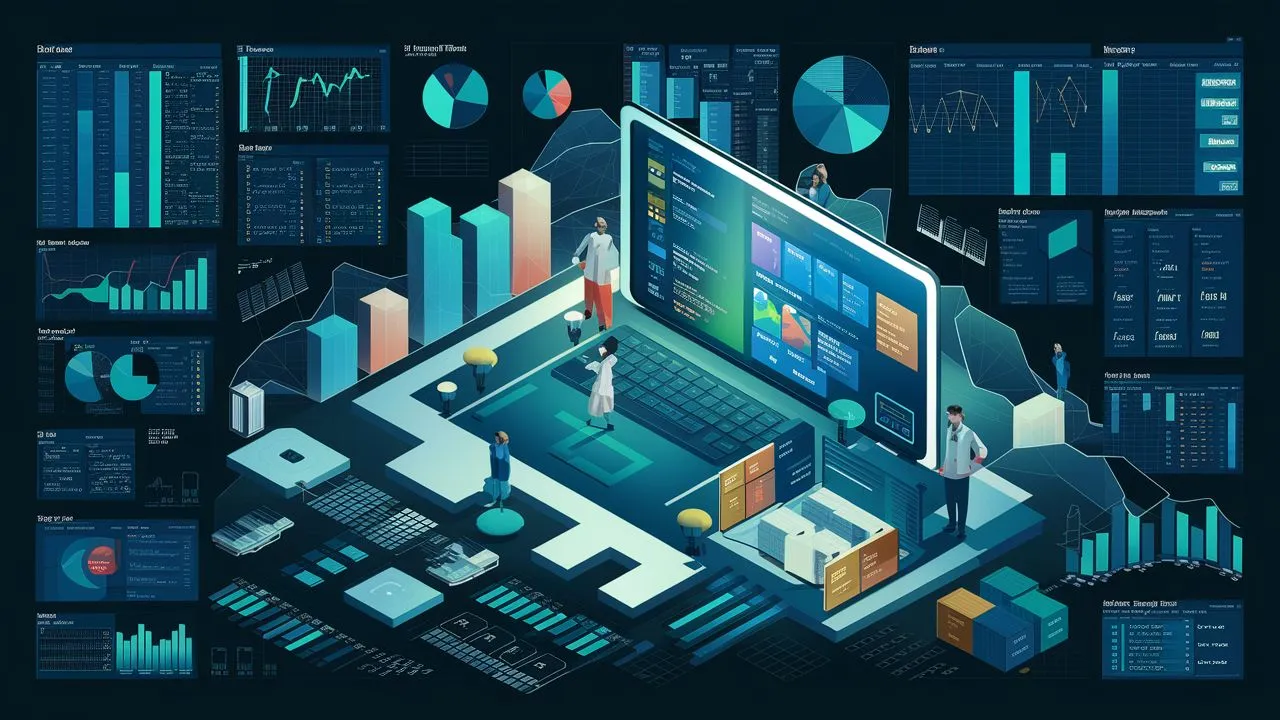Hospital Management Software (HMS) adoption is driving a revolutionary change in Bangladesh’s healthcare system toward patient-centered care, accuracy, and efficiency. Across the country’s healthcare institutions, this cutting-edge technology is improving patient care, expediting processes, and making the most use of available resources.

Overview of Software for Hospital Management
A comprehensive digital solution, hospital management software automates and simplifies the clinical, administrative, and financial operations of healthcare facilities. HMS effectively oversees all hospital operations, including electronic medical records (EMR), billing, scheduling appointments, inventory control, and more, from patient registration to discharge.
HMS Requirements in Bangladesh
The healthcare system in Bangladesh is confronted with a multitude of obstacles, such as limited resources, a swiftly expanding populace, and mounting patient demands. The delivery of healthcare is frequently delayed, erroneous, and inefficient when using traditional paper-based approaches. By digitizing and integrating hospital workflows, HMS becomes an essential tool for addressing these issues and improving overall productivity and patient care quality.
Principal Attributes and Advantages of HMS-Streamlined Patient Management: HMS facilitates easy patient registration, appointment scheduling, and medical history tracking, guaranteeing a seamless patient experience from admission to release.
Effective Finance and Billing Management: By automating insurance claims, payment processing, and invoicing through integrated billing modules, HMS lowers billing errors and enhances revenue management.
Clinical Decision Support: HMS enables doctors to make well-informed decisions and offer individualized patient care by giving them access to real-time patient data, medical records, and diagnostic information.
Inventory and Supply Chain Management: HMS reduces waste, guarantees prompt delivery of medical supplies, and maximizes resource use by automating inventory tracking, procurement, and stock management.
Improved Communication and Collaboration: HMS makes it easier for medical personnel to communicate and work together, which enables effective care coordination and prompt patient needs response.
Data Security and Compliance: HMS protects against data breaches and unauthorized access by ensuring the confidentiality and integrity of patient information through strong security features and compliance with healthcare legislation.
Implementation Issues and Things to Think About
Although the implementation of HMS has great potential to enhance Bangladesh’s healthcare system, a number of obstacles need to be overcome, such as:
Cost and Affordability: Adoption may be hampered by the initial outlay of funds and continuous maintenance expenses, especially for smaller healthcare facilities.
Digital Literacy and Training: To guarantee that healthcare personnel are competent in utilizing HMS efficiently, sufficient training and assistance are necessary.
Interoperability: For smooth data interchange and collaboration, interoperability with other software platforms and integration with current healthcare systems are essential.
Regulatory Compliance: In order to preserve patient confidentiality and confidence, adherence to regional healthcare regulations and data protection legislation must be guaranteed.
Prospects for the Future
Notwithstanding these obstacles, the government’s efforts to modernize the healthcare industry, growing public knowledge of the advantages of hospital management software, and technological breakthroughs are all likely to speed up the software’s widespread acceptance in Bangladesh during the next few years. HMS will continue to be essential in transforming healthcare administration and enhancing patient outcomes in Bangladesh as healthcare institutions embrace digital transformation.